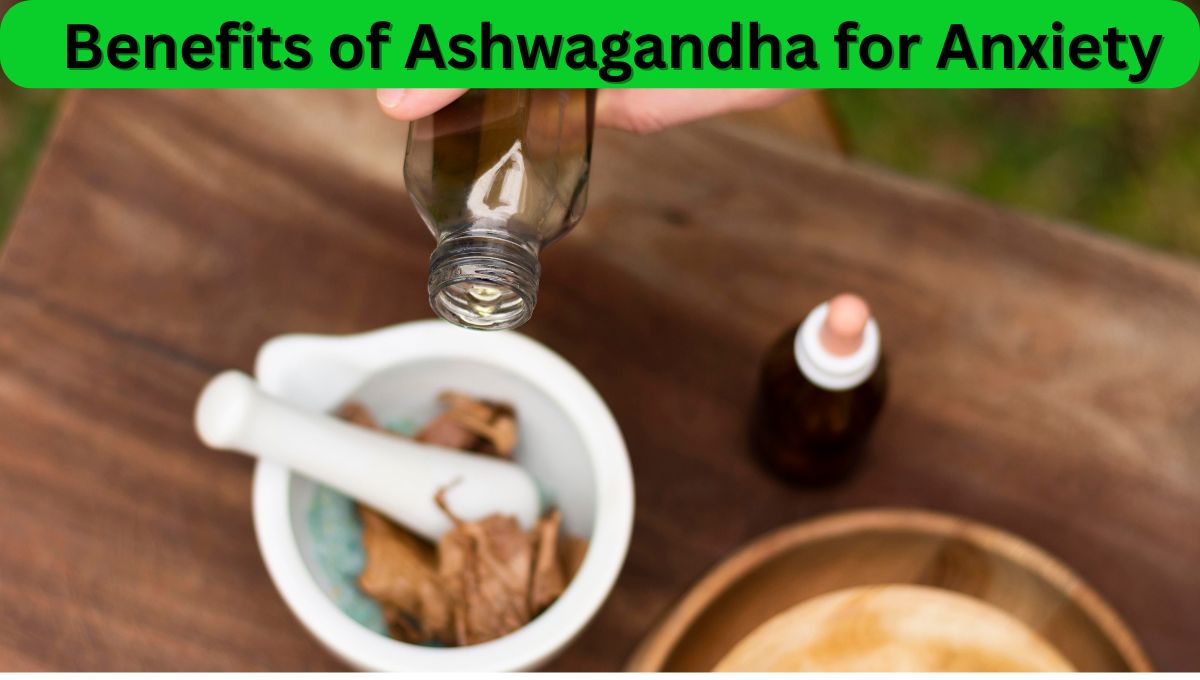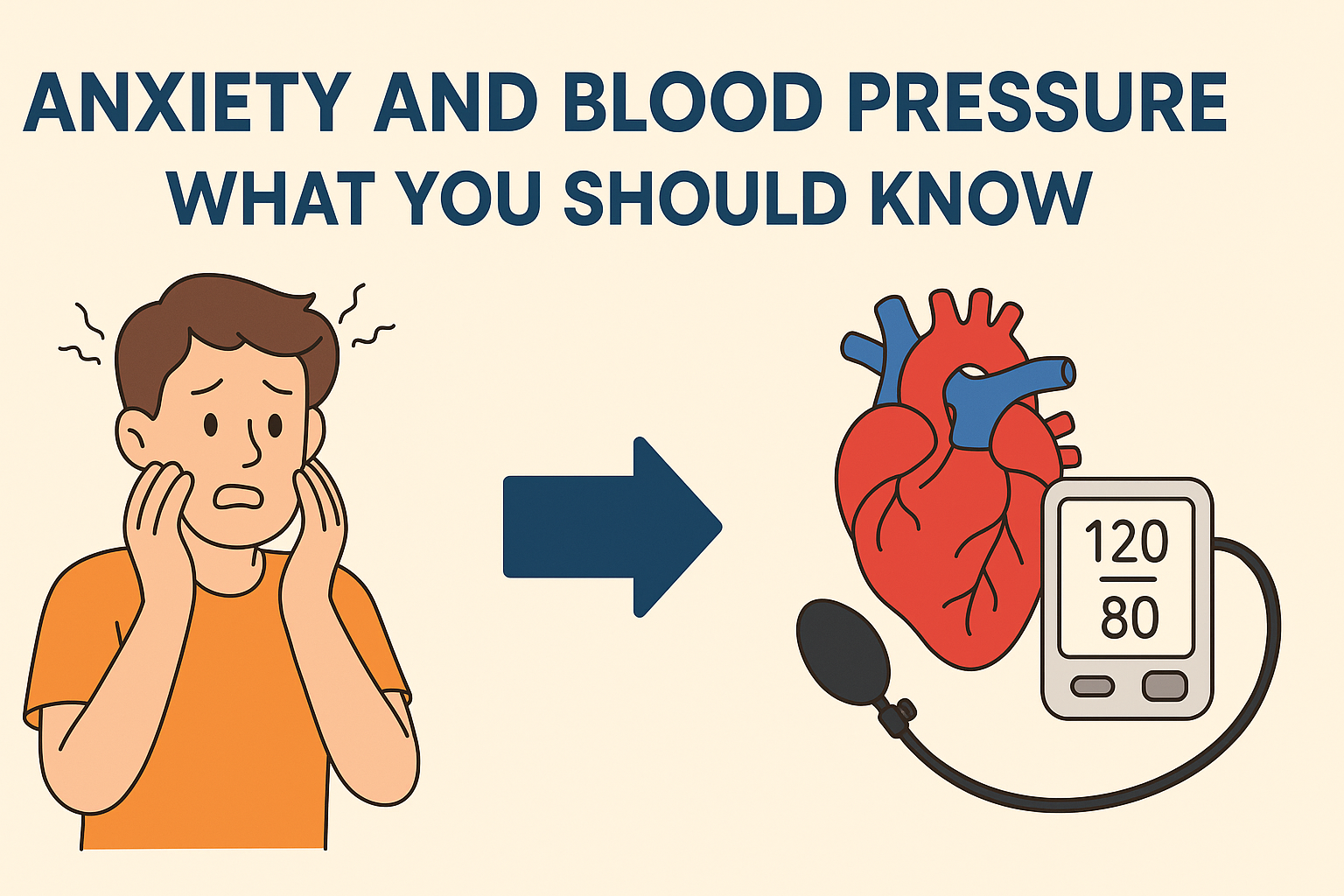Benefits of Ashwagandha for Anxiety
Anxiety is increasingly becoming a common part of modern life, affecting individuals across all age groups. The fast pace of daily routines, social pressures, and constant exposure to digital stimuli have made peace of mind a rare commodity.
In this context, people are seeking natural alternatives to traditional pharmaceutical treatments, which often come with side effects. One such powerful and time-tested remedy is Ashwagandha, an herb celebrated for centuries in Ayurvedic medicine. Known for its adaptogenic qualities, Ashwagandha helps the body adapt to stress while supporting overall well-being.
What is Ashwagandha?
Ashwagandha, scientifically called Withania somnifera, is a small shrub native to India and parts of the Middle East and Africa.
Traditionally used in Ayurvedic healing, it has gained attention in modern health circles due to its remarkable ability to promote physical and mental balance.
The term Ashwagandha translates to “smell of the horse,” implying the strength and vitality the herb imparts to those who use it. But beyond its historical reputation, what makes this herb truly fascinating is the growing body of scientific research that confirms its stress-relieving and anxiety-reducing properties.
Understanding Anxiety and the Role of Cortisol
To understand how Ashwagandha works, it’s important to explore the physiological mechanisms behind anxiety.
One of the primary stress hormones in the body is cortisol. When faced with a stressful situation, cortisol levels rise, triggering the body’s fight-or-flight response. This reaction is essential in emergencies but becomes problematic when stress is chronic.
Prolonged elevated cortisol levels can result in fatigue, insomnia, digestive issues, and persistent anxiety.
Ashwagandha plays a vital role here by helping to balance cortisol levels. It acts as an adaptogen, which means it helps regulate the body’s hormonal response to stress.
Over time, this balancing effect can help reduce anxiety symptoms, improve mood, and restore a sense of calm and control.
Scientific Backing for Ashwagandha’s Anti-Anxiety Benefits
Modern research has offered valuable insights into Ashwagandha’s effectiveness. In one prominent clinical trial published in the Indian Journal of Psychological Medicine, participants who took 300 mg of Ashwagandha extract twice daily reported a significant reduction in cortisol levels and improvements in perceived stress.
These findings underscore what Ayurvedic practitioners have known for centuries: Ashwagandha works not only to reduce stress but to promote a more balanced emotional state.
Another compelling study found that individuals with Generalized Anxiety Disorder (GAD) experienced a noticeable decrease in anxiety symptoms when using Ashwagandha compared to those taking a placebo.
This suggests that Ashwagandha doesn’t merely offer temporary relief; it provides sustained emotional stability when used consistently.
A Natural Path to Better Sleep and Mental Resilience
The link between sleep and anxiety is undeniable. When the mind is anxious, falling asleep becomes difficult, and restless nights only worsen anxiety the next day.
Ashwagandha supports sleep by reducing overactivity in the central nervous system and helping the body transition more naturally into rest. Unlike sedatives that cause grogginess or dependence, Ashwagandha works gently, making it easier to fall and stay asleep.
In addition to promoting better rest, Ashwagandha builds long-term mental resilience. By improving the body’s stress response and regulating neurotransmitters like serotonin and dopamine, it encourages a more positive mental state.
People using Ashwagandha often report feeling calmer, more grounded, and better equipped to handle daily challenges.
Ashwagandha vs. Conventional Treatments: A Comparative Look
While pharmaceutical treatments such as SSRIs and benzodiazepines are often prescribed for anxiety, they come with risks including dependence, withdrawal symptoms, and numerous side effects.
In contrast, Ashwagandha provides a natural alternative that can be equally effective for many individuals, especially those with mild to moderate anxiety.
| Feature | Ashwagandha | Prescription Medications |
|---|---|---|
| Natural Origin | Yes | No |
| Risk of Dependence | Minimal | High |
| Side Effects | Mild (if any) | Often Significant |
| Promotes Restful Sleep | Yes | Sometimes |
| Long-Term Use | Safe with Breaks | May Require Medical Supervision |
The comparison clearly highlights that while prescription medications can be effective, they are not always ideal for long-term use. Ashwagandha offers a safer, more holistic option for those seeking to manage their anxiety naturally.
Best Ways to Incorporate Ashwagandha into Your Routine
Ashwagandha is available in multiple formats to suit different preferences. Capsules and tablets are the most popular and convenient.
Powders can be mixed into warm milk or smoothies, while tinctures offer fast absorption for those who need quick relief. Ashwagandha tea is another gentle option, especially helpful before bedtime.
Dosage varies depending on individual needs and the severity of anxiety. For mild symptoms, 250–300 mg per day is typically sufficient.
In cases of chronic stress or severe anxiety, doses of 500–600 mg are recommended. However, it’s important to use standardized extracts that contain at least 5% withanolides—the active compounds responsible for the herb’s benefits.
Timing also matters. Taking Ashwagandha in the morning can help promote calmness and resilience throughout the day, while evening doses can support better sleep. Some individuals prefer to divide their dosage between morning and night for more consistent effects.
Tips for Achieving the Best Results with Ashwagandha
To maximize the effectiveness of Ashwagandha, consistency is key. The herb should be taken daily for at least four to six weeks to experience its full benefits.
It works best when combined with a healthy lifestyle, including a balanced diet, regular physical activity, and mindfulness practices like meditation or yoga.
It’s also advisable to avoid high caffeine intake while using Ashwagandha, as caffeine may counteract its calming effects. Pairing Ashwagandha with other calming herbs such as Brahmi or Shankhpushpi may further enhance its benefits.
Understanding the Safety Profile of Ashwagandha
Ashwagandha is generally well tolerated and safe for most individuals. However, like any supplement, it may cause mild side effects in some cases, such as digestive discomfort or drowsiness, particularly at higher doses.
| Potential Side Effect | Frequency |
|---|---|
| Digestive Upset | Occasionally |
| Headache | Rare |
| Drowsiness at High Doses | Rare |
Certain groups should exercise caution. Pregnant and breastfeeding women, individuals with autoimmune conditions, and those taking thyroid medications should consult their healthcare provider before starting Ashwagandha.
Real-World Experiences and Testimonials
The transformative impact of Ashwagandha is best illustrated by the stories of those who’ve used it. Sarah, a 29-year-old marketing professional, struggled with intense social anxiety that made even routine interactions stressful.
After incorporating Ashwagandha into her routine, she noticed a shift in her emotional responses. She felt more relaxed, grounded, and confident in public settings.
Similarly, James, a 42-year-old executive, found himself overwhelmed by workplace burnout. Sleepless nights, irritability, and anxiety had become part of his daily life. Ashwagandha offered him a new sense of control.
Within weeks, he reported sleeping better, handling stress more effectively, and feeling mentally sharper.
Ashwagandha in Ayurvedic Wisdom
In Ayurveda, anxiety is linked to an imbalance in the Vata dosha, which governs movement and change. When Vata is aggravated, it can manifest as restlessness, nervousness, and a scattered mind. Ashwagandha is classified as a grounding herb that pacifies Vata, restoring internal balance and emotional calm.
Ayurvedic practitioners often recommend combining Ashwagandha with other herbs to enhance its calming properties. This holistic approach not only treats anxiety symptoms but also addresses underlying imbalances that contribute to mental distress.
Final Thoughts: Embracing a Calmer, Healthier Future
Ashwagandha stands out as a powerful and accessible solution for anxiety. It bridges the gap between traditional healing and modern science, offering a gentle yet effective approach to managing stress and promoting emotional well-being.
By regulating cortisol levels, supporting neurotransmitter function, and enhancing the body’s resilience to stress, Ashwagandha provides comprehensive support for mental health.
Whether you’re navigating occasional stress, chronic anxiety, or simply seeking greater emotional stability, Ashwagandha is a natural ally worth considering.
As always, it’s best to consult with a healthcare provider before introducing any new supplement, especially if you have existing health conditions.
By taking this simple step, you could be on your way to reclaiming peace of mind, emotional balance, and a healthier, more fulfilling life.
Frequently Asked Questions
How long does it take for Ashwagandha to show results for anxiety?
Most people begin to notice improvements within two to four weeks of consistent daily use. Maximum benefits are typically seen around the six-week mark.
Can Ashwagandha be used alongside prescribed anxiety medication?
In some cases, yes—but it’s essential to consult a healthcare professional to avoid interactions. Ashwagandha may amplify the effects of sedatives or SSRIs, so professional guidance is crucial.
Will Ashwagandha make me feel sleepy during the day?
Ashwagandha generally does not cause daytime drowsiness, especially at moderate doses. However, higher doses or individual sensitivity may result in a calming effect that some might interpret as mild sleepiness.












